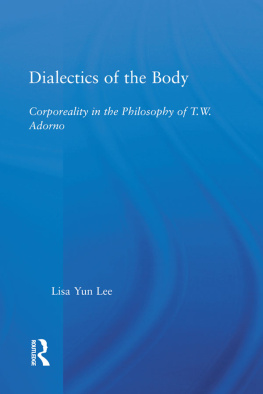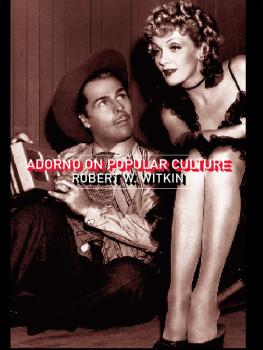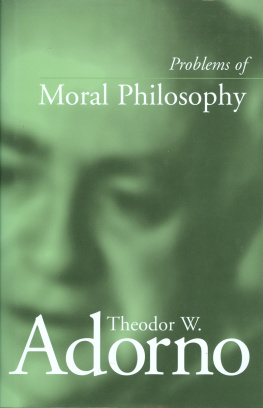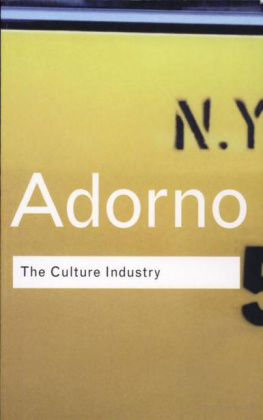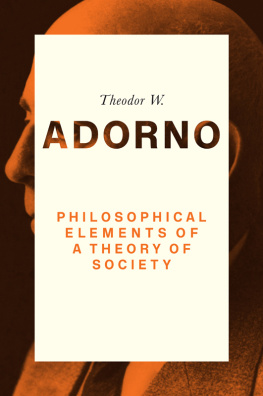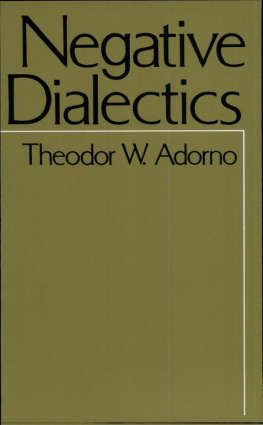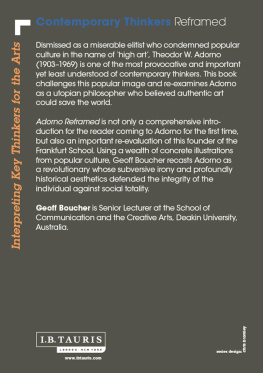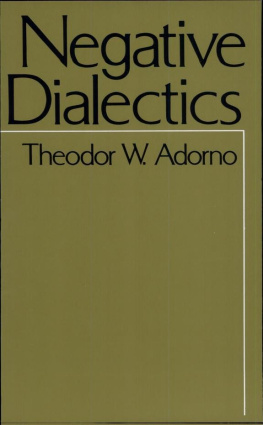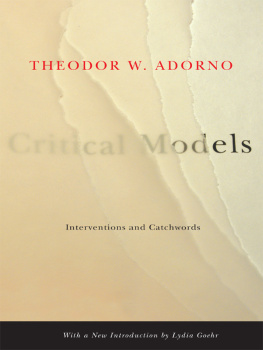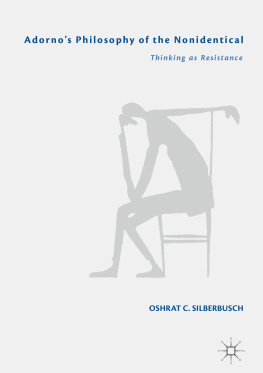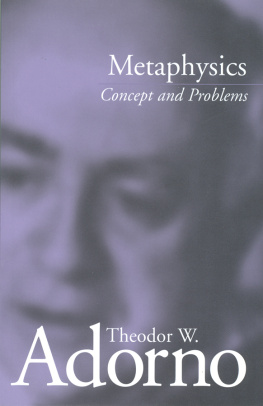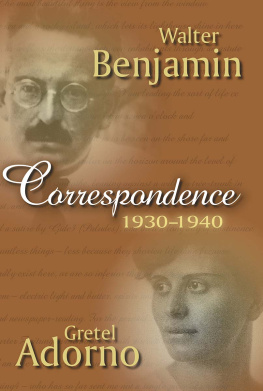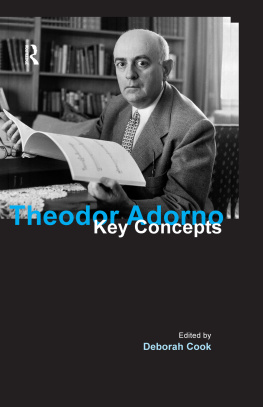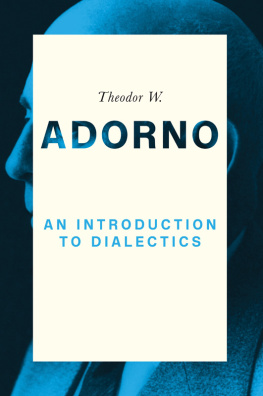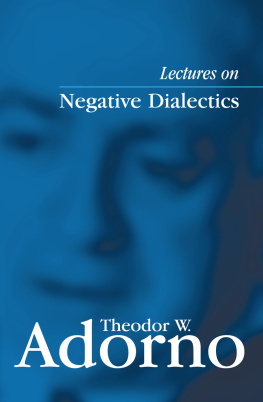STUDIES IN PHILOSOPHY
Edited by
Robert Bernasconi
University of Memphis
A ROUTLEDGE SERIES
STUDIES IN PHILOSOPHY
ROBERT BERNASCONI, General Editor
BETWEEN DEFLATIONISM
AND CORRESPONDENCE THEORY
Matthew McGrath
THE RELEVANCE OF PHENOMENOLOGY
TO THE PHILOSOPHY OF LANGUAGE AND MIND
Sean D. Kelly
RISK, AMBIGUITY, AND DECISION
Daniel Ellsberg
THE EXPLANATIONIST DEFENSE OF
SCIENTIFIC REALISM
Dorit A. Ganson
NEW THOUGHTS ABOUT OLD THINGS
Krista Lawlor
ESSAYS ON SYMMETRY
Jenann Ismael
DESCARTES METAPHYSICAL REASONING
Roger Florka
ESSAYS ON LINGUISTIC CONTEXT SENSITIVITY
AND ITS PHILOSOPHICAL SIGNIFICANCE
Steven Gross
NAMES AND NATURE IN PLATOS CRATYLUS
Rachel Barney
REALITY AND IMPENETRABILITY IN KANTS
PHILOSOPHY OF NATURE
Daniel Warren
FREGE AND THE LOGIC OF SENSE AND
REFERENCE
Kevin C. Kleinent
TOPICS IN THE PHILOSOPHY OF POSSIBLE
WORLDS
Daniel Patrick Nolan
UNDERSTANDING THE MANY
Byeong-uk Yi
ANTHROPIC BIAS
Observation Selection Effects
Nick Bostrom
THE BEAUTIFUL SHAPE OF THE GOOD
Platonic and Pythagorean Themes in Kants
Critique of the Power of Judgment
Mihaela C. Fistioc
MATHEMATICS IN KANTS CRITICAL
PHILOSOPHY
Reflections on Mathematical Practice
Lisa Shabel
REFERENTIAL OPACITY AND MODAL LOGIC
Dagfinn Fllesdal
LEVINAS
Ethics, justice, and the Human beyond Being
Elisabeth Thomas
THE CONSTITUTION OF CONSCIOUSNESS
A Study in Analytic Phenomenology
Wolfgang Huemer
DIALECTICS OF THE BODY
Corporeality in the Philosophy of TW Adorno
Lisa Yun Lee
DIALECTICS OF THE BODY
Corporeality in the Philosophy of T.W. Adorno
Lisa Yun Lee

First published 2005 by Routledge
Published 2016 by Routledge
2 Park Square, Milton Park, Abingdon, Oxon OX14 4RN
711 Third Avenue, New York, NY 10017, USA
Routledge is an imprint of the Taylor & Francis Group.
Copyright 2005 Taylor & Francis.
All rights reserved. No part of this book may be reprinted or reproduced or utilised in any form or by any electronic, mechanical, or other means, now known or hereafter invented, including photocopying and recording, or in any information storage or retrieval system, without permission in writing from the publishers.
Notice:
Product or corporate names may be trademarks or registered trademarks, and are used only for identification and explanation without intent to infringe.
Credits and acknowledgments borrowed from other sources and reproduced, with permission, in this textbook appear on appropriate page within text.
ISBN: 9780415972451 (hbk)
Library of Congress Cataloging-in-Publication Data
Lee, Lisa Yun, 1969
Dialectics of the body: corporeality in the philosophy of T.W. Adorno / by Lisa Yun Lee.
p. cm. -- (Studies in philosophy)
Includes bibliographical references and index.
ISBN 0-415-97245-0 (alk. paper)
1. Adorno, Theodor W., 1903-1969. 2. Body, Human
(Philosophy)--History--20th century. I. Title. II. Series: Studies in philosophy (New York, N.Y.)
B3199.A34L45 2004
128.6092-dc22
2004019986
Table of Contents
This project owes a great intellectual debt to Fredric Jameson, James Rolleston, Kenneth Surin and Sarah Westphal. I also offer my warmest thanks to all of the staff and faculty of Womens Studies at Duke. I am particularly grateful to Nancy Rosebaugh and Jean OBarr, whose solidarity, generosity and feminist vision were truly inspirational.
I am deeply thankful for the friendship of Barbara Ransby, whose intellectual endeavors, activism, integrity and commitment to ideals moved me in ways too numerous to express. She is the best personal and political ally anyone could ever hope for. This is also true of the board of The Public Square, whose lives are a continual source of wonder and motivation, and for which I am grateful.
Many delicious thanks to Alec Duffy, whose companionship, conversation and song helped me to finish. To Ambrose Martos, who entered my life just in time to make the acknowldgements, I thank for the laughter. Much appreciation to Peter J. Wolfgang, whose insightful editorial help, commitment to the project and gracious attitude towards all tasks contributed enormously.
To my parents, Lydia and Jui-ming Lee, and my older sister Tina, a great deal of love and gratitude for your support and encouragement throughout my life. Many thanks to my little sister, Anita Lee, whose constant presence is a source of great joy and whose enthusiasm for life, love and true sisterly friendship is a wellspring of great happiness to me.
I am deeply grateful to Emily, Edna and Elizabeth, whose poetry sustained me during the hardest periods of writing.
To Josie and Henry, whose small lives I greatly disrupted to write this book, I thank you for your understanding and wisdom beyond years.
Finally, to Marc Ewing, the one truly extraordinary person in my life, who will always be the one and only. I thank you for everything and offer the deepest love that transcends any words.
It is implausible for many to see Theodor Adorno as a philosopher of the body, because he isin every senseone of the great minds of twentieth century German thought. While the body conjures up sentiments such as desire, lust, passion and jouissance, Adorno, in contrast, has been described by critics as a haute bourgeois thinker with remorseless tunnel vision and mandarin fastidiousness while his works have been characterized as highbrow, hyper-intellectual, anguished and stodgy.
This work intends to read Adorno against the grain and to show that hope and desire are present in Adornos philosophy, no matter how bleak. Domination is not yet complete and the human subject is not yet entirely impotent. My central thesis is that Adornos analysis of reified society emanates from and returns to the body. It is important to immediately admit that there is no single unified theory of the body in Adornos writings. In fact, although I will be arguing for its primacy in Adornos thought, there is only one short sustained writing about the body, which is located in an appended text to the Dialectic of Enlightenment entitled The Importance of the Body. However, the body persistently appears in heterogeneous fragments throughout Adornos writing as the specifically corporeal (Leib), the more general body (Krper), and what he refers to as metaphors of the body. As I will discuss below, the absence of a sustained, systematic analysis of the body in Adornos thought is entirely consistent with his commitment to the formative nature of style, dialectical thought and immanent critique. This manner of criticism confronts a particular mode of thinking with its own logic, using the strength of its own arguments against its own conclusions. Adorno adopts this mode of critique from Hegel, who claimed that genuine refutation is not achieved by defeating the opponent where he is not. Immanent critique remains within what it criticizes, using the internal contradictions of a work to criticize the work itself. Adornos style can be understood as a kind of strategic asceticism and critique of forms of thought that would deny pleasure and desire Together, these traces of the somatic form a constellation that reflects the profound importance of corporeality to Adornos philosophy and the visceral nature of Adornos writing.

